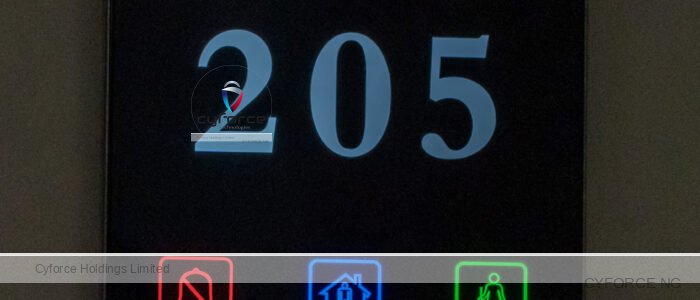To understand fully what a term entails, we must first understand its meaning.
Using the dictionary definition, the word Cyber means virtual and computer-generated. It is everything having to do with the internet collectively.
Security is the condition of not being threatened physically, psychologically, emotionally or financially.
Merging the two as a word, we can see that Cyber security in nonprofessional terms is the condition of being protected against electronic attacks such as cyber warfare.
Using professional terms now, cyber security refers to all the bodies of technology and practices collectively, that are designed to protect devices, programs, network and data from attack or unauthorized access.
Unauthorized access is access gained into a program, a device or more without the consent of the person who owns the device or program. For example, when a person keeps trying to guess your lock screen pass code and gets lucky, the moment he/she is granted entrance by the device, he/she has gained unauthorized access.
We must now see that cyber security protects our data from being seen and manipulated to suit the goals of these individuals.
A few of us may feel like we don’t use the internet as much as the next person and every information there is what others already know which is harmless so we don’t feel encouraged or bothered to protect our data and devices. That is a dangerous mentality. Having that type of mentality makes us lax in our duties and responsibilities to keep our data safe. You may feel like you have nothing to hide or protect online since you do not have a history of visiting questionable sites and do not have any bankcard linked to your online presence or data. These things do not matter in most cases. You could be whistle-clean and still be a victim of cyber-crimes. If a person gains unauthorized access to your WIFI pass code, you lose data when he/she uses your WIFI to do things online, and to get the data, you spent money. Identity theft is becoming rampant in our society today and all these people need are certain vital information about you to be able to use your identity to commit cyber-crimes or just get your bank details. We use the internet more in this age and time and we give our private details to some trustworthy sites; these sites would not be held responsible for a breach if you do not do your part and secure your data and devices. Having a PayPal account and giving your bank details is not bad or risky if you protect your device well. The moment another person has your PayPal account password and gets in however; your money is at risk. Here, the fault does not lie with PayPal but with you for being careless with information that should have been kept confidential.
I hope we now understand that cyber security concerns the lot of us. It can be as simple as not wanting a friend to view some of your pictures or read your messages and placing restrictions on the apps containing this information and as complex as creating firewalls for a program you’ve created. Known examples of Cyber Security is the common lock screen password and the enabling of guest mode on our devices.
BENEFITS OF CYBER SECURITY
Below are some benefits of Cyber Security.
- Cyber Security ensures data integrity: Data integrity is the state whereby data has been uncompromised and everything is in place with no redundancy and unauthorized access.
- Cyber Security protects systems against viruses and unwanted programs: Viruses are widely known as small microorganisms that make us sick. In Cyber Security and the internet world however, viruses are malicious programs that attack the integrity of our data and make our system sick. Cyber Security helps to banish these malicious programs, keep our data safe and make all interactions we have with our system risk-free.
- Cyber Security protects our data from being stolen.
- Cyber Security ensures privacy of our data and in our workspace.
Now that we know what Cyber Security is and have an idea of its benefits, let us look at a few common types of Cyber Security.
COMMON TYPES OF CYBER SECURITY
CLOUD SECURITY: This type of Cyber Security protects the data used in cloud-based services. An example of a cloud-based service is your Google Drive.
NETWORK SECURITY: This type of Cyber Security entails the protection of network traffic by controlling all connection paths within the network to prevent cyber threats from entering the network.
INTRUSION PREVENTION SYSTEM (IPS): This is a type of Cyber Security that has to do with identifying potentially hostile cyber activities, hence the name, Intrusion Prevention System. It identifies breaching threats and works to prevent them from being carried out.
DATA LOSS PREVENTION: This type of cyber security is self-explanatory. This is a Cyber Security type dealing with preventing data loss. It does this by monitoring information at rest or in use.
Now that we are a bit familiar with some types of Cyber Security, let us get familiar with the definitions of a few popular Cyber attacks for safety.
- Malware: This term describes malicious software like the aforementioned virus.
- Phishing: This is any fraudulent attempt to get sensitive information such as credit card details and passwords by disguising oneself as a trustworthy entity in an electronic medium. Some Phishing victims do not know they have fallen prey to the fraudsters because they trust the font put on by them until they find out that their data has been compromised.
- Cyber Stalking: This is the use of the internet to stalk an individual or a group of internet users to gather information that could be used to harass or blackmail them. Cyber stalking is like stalking one physically but since it is done in the cyber world, the perpetrator monitors every online activity performed by the target.
- Man-in-the-middle attack: The Man-in-the-middle (MITM) attack is a Cyber attack in which the attacker relays and in most cases, alters the communication between two parties who believe they are directly communicating with each other. This is quite the mischievous attack as the MITM has information privy to the victims and can manipulate this information for his own gain.
- Denial-of-service attack (DoS): In this Cyber-attack, the attacker tries to make a network resource unavailable to its authorized users by temporarily interrupting services of a host connected to the internet. This type of attack shuts down the target network or device by introducing a torrent of traffic or sending an information overload; making it crash.
This article has been written to give both new and experienced internet users a gross overview on Cyber Security and a few Cyber crimes. How to make sure your data remains uncompromised and away from any fraud attempt will be discussed in my next article but before then, feel free to ask any question you may have on Cyber Security for Beginners.



















































